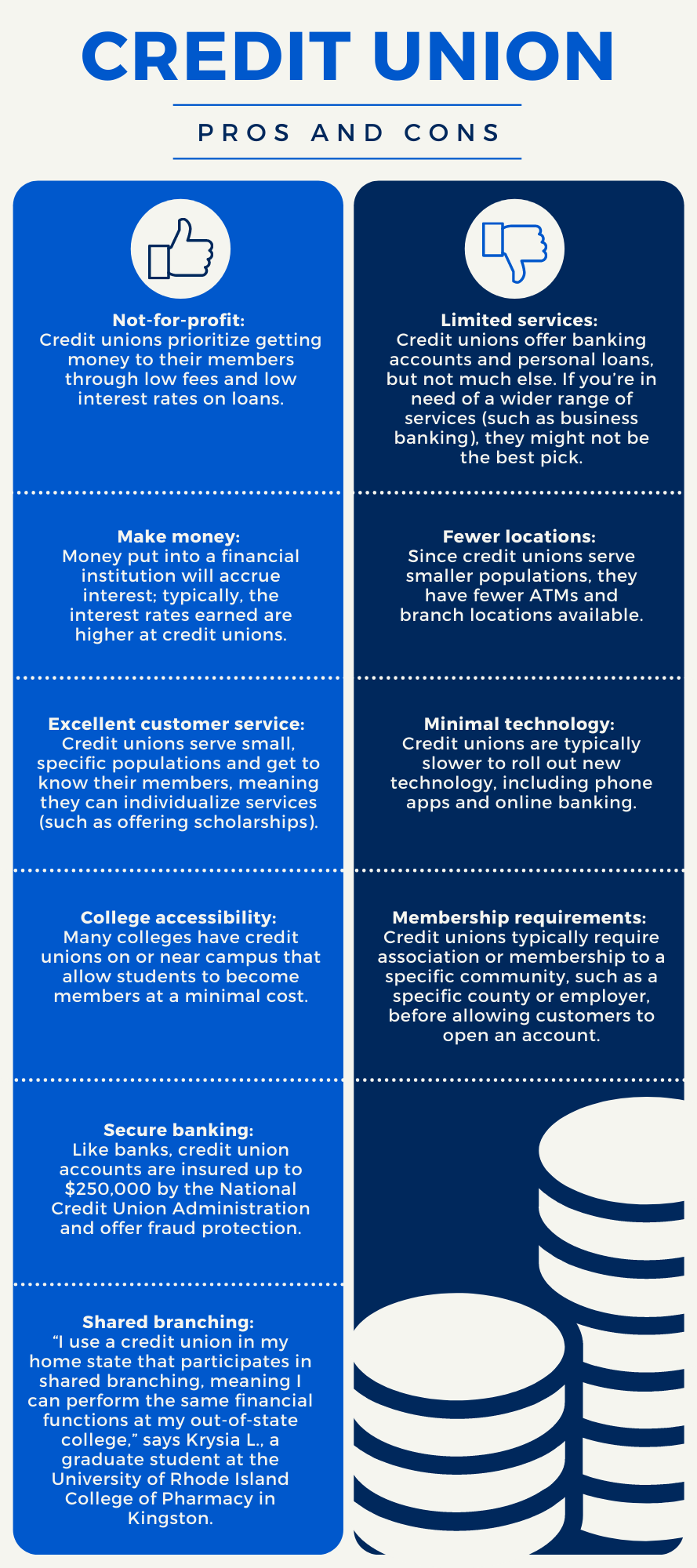Credit Union Cheyenne WY: Accessible and Hassle-free
Credit Union Cheyenne WY: Accessible and Hassle-free
Blog Article
Why Cooperative Credit Union Are the Best-Kept Financial Key
In the world of financial institutions, cooperative credit union often remain a clean secret, quietly supplying a host of advantages that establish them apart from typical financial institutions. Their member-focused method and dedication to neighborhood well-being produce an one-of-a-kind economic landscape that prioritizes customized solution and customized remedies. The concern remains: exactly what makes lending institution the recommended option for those aware?
Background of Credit History Unions

The concept of lending institution spread internationally, with the first lending institution in The United States and Canada being developed in Canada in 1901 by Alphonse Desjardins. In the USA, the initial credit history union was established in New Hampshire in 1909 by Edward Filene and Roy Bergengren. These early cooperative credit union led the way for the participating monetary establishments we understand today, which focus on the economic well-being of their participants over earnings.
Advantages of Signing Up With a Credit Report Union
Originating as a reaction to the limited access to traditional financial solutions, credit history unions offer a variety of compelling advantages to people looking for a more community-focused strategy to economic solutions. Unlike conventional financial institutions, credit score unions are member-owned and ran, permitting them to focus on the requirements of their participants over making best use of earnings.

Additionally, cooperative credit union are deeply rooted in the areas they offer, commonly supporting local initiatives and charities. This community-driven technique promotes a sense of belonging and shared prosperity amongst participants, distinguishing lending institution as not just financial establishments yet as columns of area support.
Lending Institution Vs. Conventional Bank
Debt unions are not-for-profit financial cooperatives owned by their members, who additionally typically have a say in the institution's decision-making processes with voting rights. Additionally, credit history unions have a tendency to focus on serving their members and the area instead than optimizing profits. wyoming credit unions. While financial institutions may use a broader variety of solutions and have more considerable ATM and branch networks, they may not constantly focus on the finest interests of private customers in the same way credit history unions do.
:max_bytes(150000):strip_icc()/dotdash-credit-unions-vs-banks-4590218-v2-70e5fa7049df4b8992ea4e0513e671ff.jpg)
Neighborhood Impact of Cooperative Credit Union
Cooperative credit union play a vital duty in boosting the financial well-being of regional areas. Unlike traditional banks, cooperative credit union are not-for-profit organizations that are possessed and run by their members. This special structure allows lending institution to focus on the needs of their members and the areas they serve over making the most of earnings.
One considerable way lending institution effect local neighborhoods is by providing accessibility to economical monetary services. Cooperative credit union usually use reduced rate of interest rates on fundings, higher rates of interest on interest-bearing accounts, and reduced charges compared to typical banks. This economic support aids area participants accomplish their economic goals, whether it's getting a home, starting a small business, or conserving for Get the facts the future.
Moreover, credit rating unions are deeply rooted in the areas they serve. By investing in the well-being of their communities, credit history unions assist foster economic growth, security, and prosperity for all citizens.
Tips for Maximizing Cooperative Credit Union Subscription
Take benefit of all the services your debt union supplies. Credit scores unions offer helpful resources a vast array of financial items such as cost savings accounts, loans, debt cards, and financial planning solutions.
Secondly, obtain associated with your lending institution's neighborhood occasions and efforts. Numerous lending institution actively sustain local areas via various programs such as economic literacy workshops, charity events, and sponsorships. By taking part in these tasks, you not only add to the betterment of your community however additionally construct solid connections with various other members and staff.
Credit scores unions regularly introduce brand-new products and solutions to fulfill their members' advancing needs. By remaining updated, you can take benefit of unique offers, price cuts, and awards customized to credit scores union participants.
Conclusion
By prioritizing the financial well-being of their participants and sustaining regional neighborhoods, credit rating unions stand out as hidden treasures in the monetary market. Joining a credit scores union can offer access to inexpensive economic solutions, promote financial education and learning, and like it add to positive community influence.
Report this page